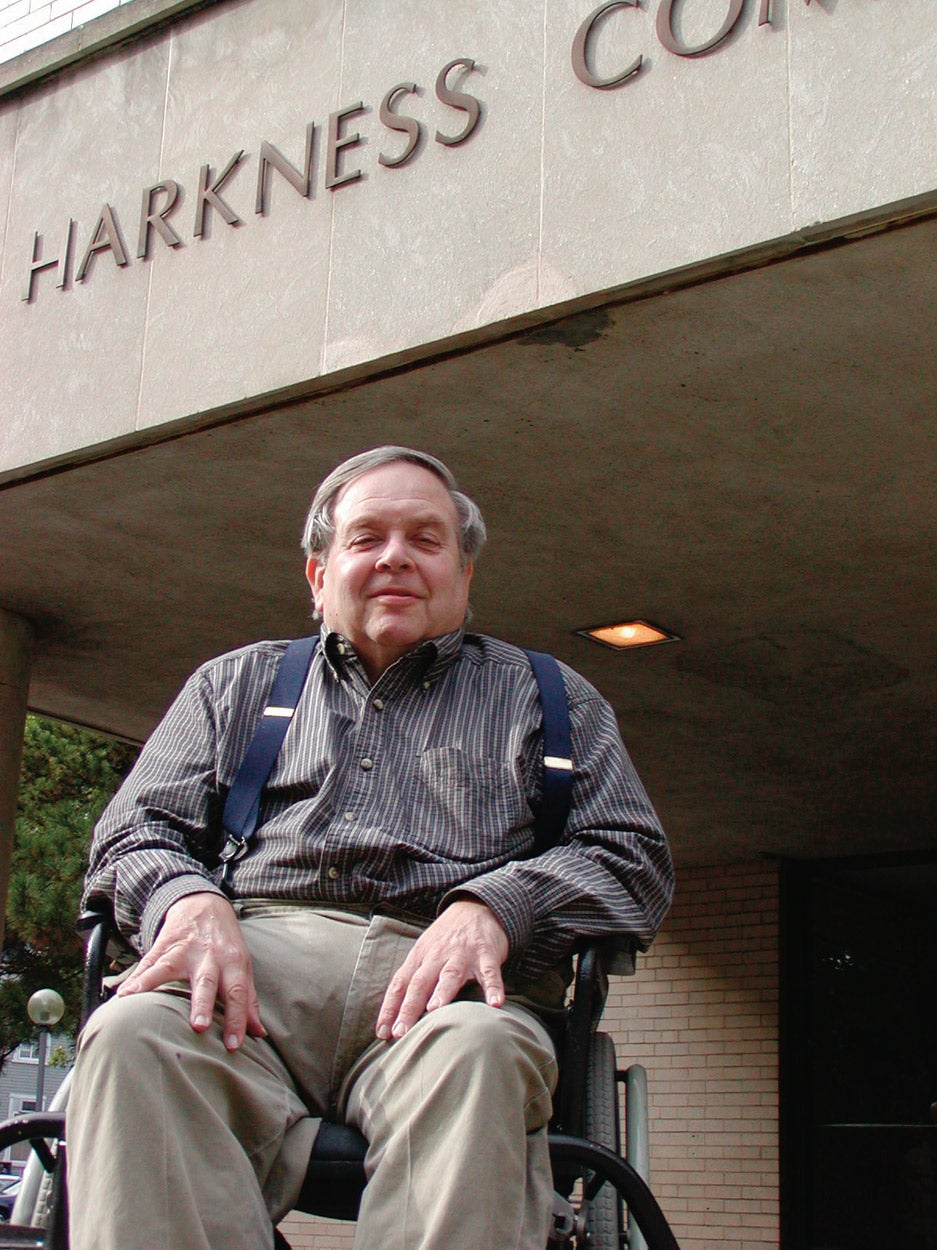Designers of the FDR Memorial in Washington, D.C., debated whether to depict the 32nd president in the wheelchair he hid from the nation. But according to Charles Gamer ’66, they should have thought a little more about people in wheelchairs today.
Gamer, who has multiple sclerosis and uses a wheelchair, found the bathroom at the memorial difficult to access during a visit there in 1998. He wrote a letter to note the problem, the first of many letters in an effort to ensure that people with disabilities have the same freedoms as everyone else.
“I’m a lawyer–it’s not hard to do these things,” said Gamer. “You feel it’s a skill you have. You’d like to see something happen if you can do it.”
Indeed, the inquiries nearly always get results, he says, including at Harvard Law School, which recently installed a handicapped-accessible bathroom after Gamer discovered at his reunion that the Harkness student center didn’t have one. The many older buildings in the Boston area, where Gamer lives, often are hard to navigate for people in wheelchairs. But he aims to change that, bolstered by the provisions of the Americans with Disabilities Act and his own activism. In one case, his efforts led the U.S. attorney’s office to require Burger King to correct ADA violations at 17 restaurants at rest stops in southern New Hampshire.
He enjoys being an advocate for the disabled. It’s easier, he says, than the work he used to do, in the law firm practice he left several years ago because of his illness. And he hopes to make it easier for people in wheelchairs who don’t venture out into the world–not because they want to hide their disability, like FDR, but because of the barriers to simply getting around. For those who need one, a wheelchair shouldn’t stop you from living life, he says. It should make life better.
